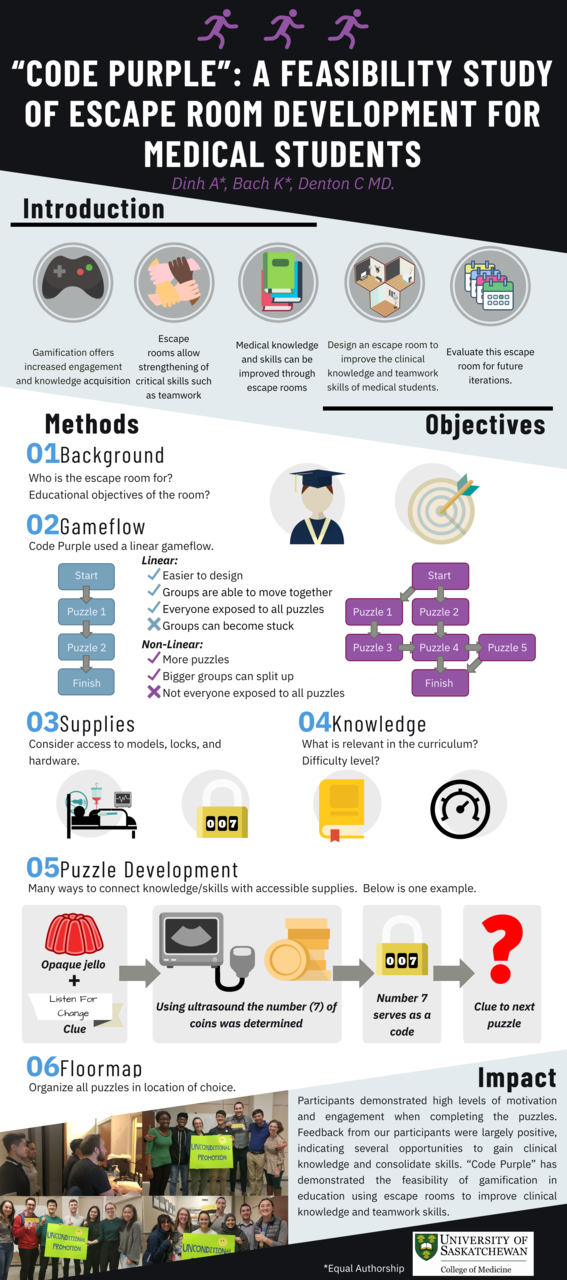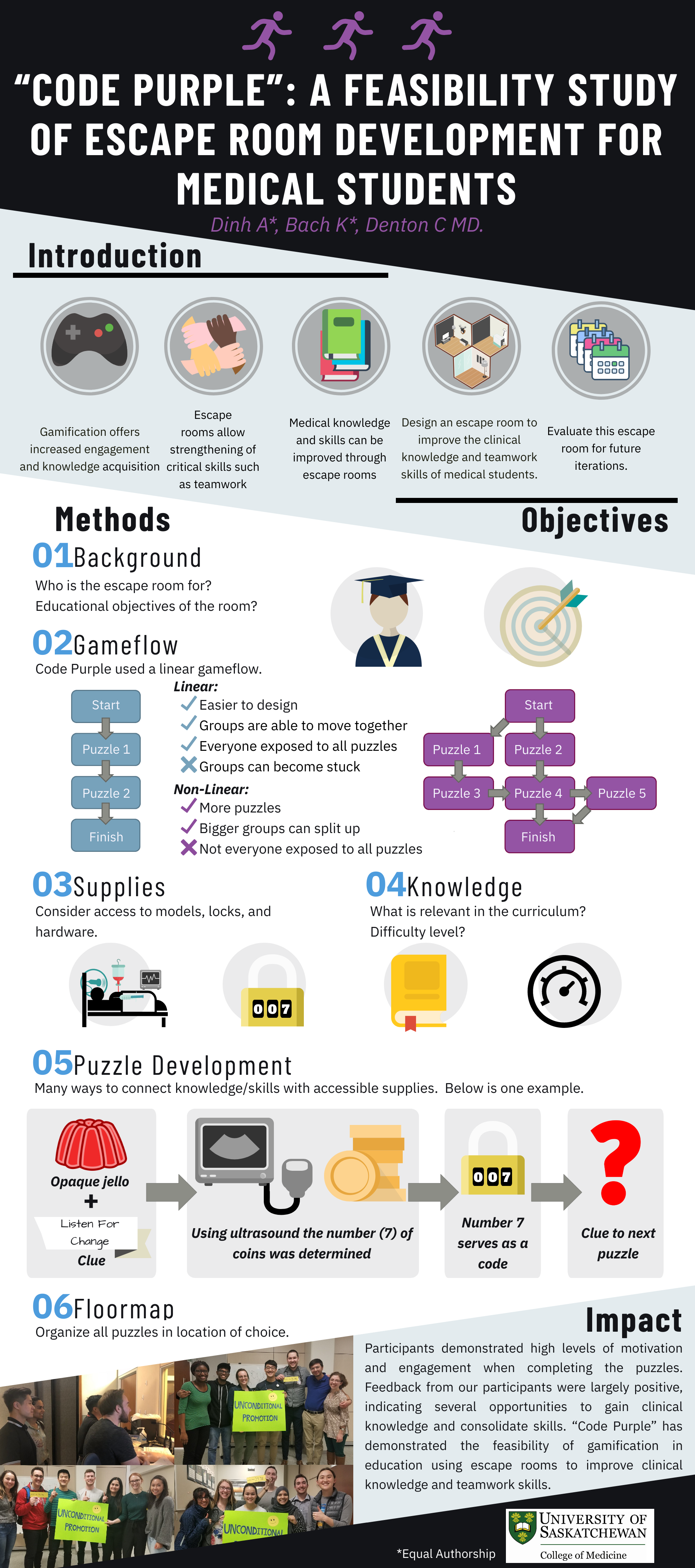Abstract
RATIONALE: Gamification is a young field in education that offers increased engagement and knowledge acquisition by applying typical elements of game playing into learning opportunities. Escape rooms embody gamification by providing an immersive experience where individuals must work together to complete a series of problems and puzzles that lead to the ‘escape’ of a room. These rooms can be conducive to medical teaching and as a result, have become an emerging tool to build teamwork and review medical knowledge.
OBJECTIVES: Our goal was to: 1) design an escape room to improve the clinical knowledge and teamwork skills of medical students, 2) to evaluate this escape room for future iterations.
DESCRIPTION OF INNOVATION: “Code Purple” the name of our escape room was developed by our student run simulation interest group with the guidance of one faculty member. We delivered a linear escape room involving three rooms containing various interconnected puzzles to test critical clinical knowledge and skills. Examples of puzzles included are: use of laparoscopic box trainers, ECG interpretation, anion gap calculation, lidocaine toxic dose calculation, intubation, and ultrasound skills. Medical students were mixed into groups of three or four and given 45 minutes to complete the escape rooms. Three consecutive iterations of the escape room were run and completion times were recorded. Participants were debriefed after the escape room and asked for feedback.
IMPACT: All medical students were able to complete the escape room. Participants demonstrated high levels of motivation and engagement when completing the puzzles. Feedback from our participants were largely positive, indicating several opportunities to gain clinical knowledge and consolidate skills. When asked for areas of improvement, comments around group sizes, clarity of instructions/boundaries, and the desire for puzzles being tied together by one overarching clinical case were given. “Code Purple” has demonstrated the feasibility of gamification in education using escape rooms to improve clinical knowledge and teamwork skills.
ACKNOWLEDGMENTS: Anson Dinh and Kevin Bach as first co-authors.






